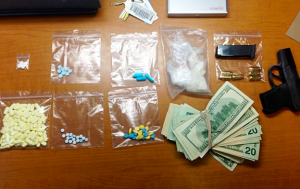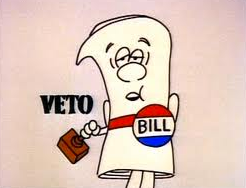I’m a strong supporter of legalizing marijuana in Minnesota, and nationally. As I’ve written before, legalized marijuana “will make Minnesota a more sensible, just, fiscally sound, humane and free state.” The evidence is overwhelming.
But let’s not be naive or dishonest here. As with any vice, there are also huge problems associated with legalization that need to be alleviated. To me, the most troubling downside of legalization is harms to minors, transportation users, and seriously ill patients.
Disadvantages of Ending Marijuana Prohibition
Damaging Minors’ Brains. First, credible researchers are finding that marijuana use by minors appears to be much more damaging than it is for adults. For an example, an article in an American Psychological Association publication reports numerous alarming research findings:
Heavy marijuana use in adolescence or early adulthood has been associated with a dismal set of life outcomes including poor school performance, higher dropout rates, increased welfare dependence, greater unemployment and lower life satisfaction.
Duke University psychologist Terrie Moffitt, PhD, and colleagues… found that persistent marijuana use was linked to a decline in IQ, even after the researchers controlled for educational differences. The most persistent users…experienced a drop in neuropsychological functioning equivalent to about six IQ points (PNAS, 2012). “That’s in the same realm as what you’d see with lead exposure,” says Weiss. “It’s not a trifle.”
There are some reasons to think that adolescents may be uniquely susceptible to lasting damage from marijuana use. At least until the early or mid-20s, “the brain is still under construction,” says Staci Gruber, PhD, a neuroscientist and director of the Cognitive and Clinical Neuroimaging Core and the Marijuana Investigations for Neuroscientific Discovery (MIND) Program at McLean Hospital/Harvard Medical School…
Also immature in teens is the endocannabinoid system. As its name implies, this system comprises the physiological mechanisms that respond to THC. That system is important for cognition, neurodevelopment, stress response and emotional control, and it helps to modulate other major neurotransmitter systems, says Krista Lisdahl, PhD, director of the Brain Imaging and Neuropsychology Laboratory at the University of Wisconsin, Milwaukee.
Repeated exposure to marijuana can dial down cellular activity in the endocannabinoid system. Such interference might be a bigger problem for immature brains, says Lisdahl. “That sets the stage for why adolescents may be more sensitive to the effects of repeated marijuana exposure, from a neuroscience perspective.”
So, should we oppose legalization of marijuana? Not unless we also want to bring back alcohol prohibition, because alcohol also is extremely damaging to the brain and many other parts of the body, and alcohol leads to countless more deaths than marijuana.
Still, in the rush to legalize marijuana, these kinds of findings shouldn’t be shrugged off by legalization enthusiasts. We need to shine a light on these findings to encourage young people to delay marijuana usage until later in life, and to encourage everyone to not overdo it.
More Traffic Fatalities. Second, legalization of marijuana also will increase the number of impaired drivers, which will likely lead to more traffic injuries and fatalities. USA Today reports the expert findings from states where the drug is now legal:
According to research from the Insurance Institute for Highway Safety and the Highway Loss Data Institute, the frequency of collision claims filed to insurers were higher in four states where marijuana is legal: Colorado, Nevada, Oregon and Washington.
The Highway Loss Data Institute study focused on collision claims between 2012 and October 2017, and compared against four control states where marijuana remains illegal: Idaho, Montana, Utah and Wyoming.
A separate study conducted by the Insurance Institute for Highway Safety focused on police-reported crashes before and after retail marijuana was allowed found Colorado, Oregon and Washington saw a 5.2 percent increase in the rate of crashes per million vehicle registrations, compared with neighboring states.
Law enforcement officials and others are using these kinds of findings as a reason to oppose legalization. That’s absurd. No one, including law enforcement officials, wants to bring back alcohol prohibition because of the staggering number of serious drunk driving problems, so we shouldn’t keep marijuana illegal because stoned driving problems are in the mix.
At the same time, we also shouldn’t deny the existence of the problem, and be passive about harm reduction.
Destroy Medical Cannabis Program For Patients. Finally, ending marijuana prohibition could inadvertently harm or destroy Minnesota’s fledgling medical cannabis program, and consequently harm the seriously ill Minnesota patients benefiting from it.
According to Minnesota Department of Health (MDH) patient surveys, many Minnesota patients are benefiting from precisely dosed, tested, and customized cannabis-based capsules, oils, tinctures, and topicals. Across a wide variety of qualifying conditions, two-thirds of patients report significant benefits, while only 10% report little to no benefit.
When it comes to chronic pain patients, the MDH surveys show that 63% of patients who had been on highly lethal, addictive opioid medications were able to reduce or eliminate their use of opioids after moving to much less addictive, lethal cannabis-based pain relief medicine.
Many seriously ill patients desperately want to hold onto those successful medicines, but worry that the post-legalization availability of cheaper, unprocessed raw marijuana plant material will put the manufacturers of their precisely dosed and formulated medicines medicine out of business.
Many Minnesotans probably won’t care too much that those manufacturers would go out of business. But the problem is, if they do go out of business, patients would suffer. That is, patients who are currently benefiting from those precisely formulated and dosed medicines would be forced to use raw plant material that they and their caregivers consider to be less safe, pure and customized form of medicine.
Mitigating the Harm
We can’t wish these problems away. Therefore, the law ending marijuana prohibition should set aside a reasonable amount — for the sake of argument, let’s say five percent to ten percent of the revenue raised from legalizing marijuana — for a Marijuana Harm Reduction Fund. The lion’s share of the revenue raised by legalizing marijuana still could be allocated however lawmakers and their constituents see fit. But a mitigation fund could be used for harm reduction projects like:
- Medicine Affordability Assistance. Some type of patient-friendly sliding scale subsidy to make precisely dosed, tested and formulated cannabis-based medicines available and affordable to all Minnesota patients who, according to medical caregivers, need them.
- Youth Brain Impact Public Education Campaign. A multi-media public education campaign aimed at teens, young adults and parents to raise awareness about the heightened dangers of marijuana use at an early age.
- Stoned Driving Public Education Campaign. A multi-media public education campaign aimed at raising awareness about the very real dangers of driving while under the influence of marijuana.
A couple of important caveats about this fund:
- Evidence-based campaigns. The content of the public education campaign should be overseen by inter-disciplinary experts to ensure campaigns don’t become Reefer Madness-like misinformation campaigns, and are instead based on the consensus of the best available scientific evidence.
- Subsidy oversight. The subsidies of patients using cannabis-based medicines should be monitored to ensure physicians are verifying that patients are benefiting from the medications and the amount of patient subsidies are kept at a reasonable level.
Again, cannabis is much less addictive and deadly than already legalized alcohol. Again, marijuana prohibition has been horrific for communities. of color. Again, marijuana prohibition is very bad, and legalization is much better. Don’t get me wrong.
But that can’t be the end of the debate. Citizens like me who are advocating to end marijuana prohibition must own these problems, and do what we can to reduce the associated harm.
Disclosure: The author is a public relations consultant who helps one of Minnesota’s two manufacturers of cannabis-based medicine share patient success stories with the news media. He doesn’t lobby for that company, and the public policy opinions expressed here are his own, not the company’s.

 The Affordable Care Act repeal, which will lead to 23 million Americans losing their health insurance protections, isn’t the only way the Trump Administration is endangering Americans. It’s proposal to ban patients from getting relief from cannabis-based medicines is just as ill-informed and cruel.
The Affordable Care Act repeal, which will lead to 23 million Americans losing their health insurance protections, isn’t the only way the Trump Administration is endangering Americans. It’s proposal to ban patients from getting relief from cannabis-based medicines is just as ill-informed and cruel.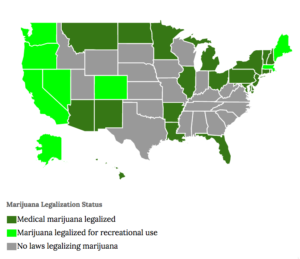 Citizens in Massachusetts, California, Maine and Nevada recently
Citizens in Massachusetts, California, Maine and Nevada recently 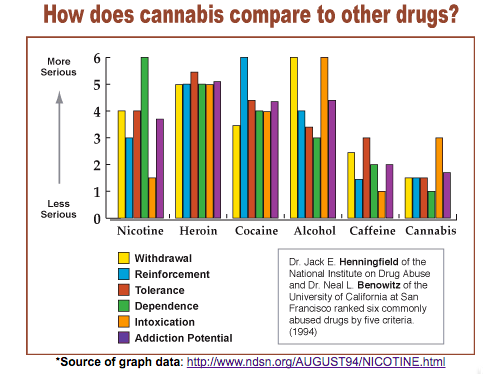 Given the facts, making alcohol legal and marijuana illegal makes absolutely no sense. Treating those two vices equally under the law will make Minnesota a more sensible and intellectually honest place.
Given the facts, making alcohol legal and marijuana illegal makes absolutely no sense. Treating those two vices equally under the law will make Minnesota a more sensible and intellectually honest place.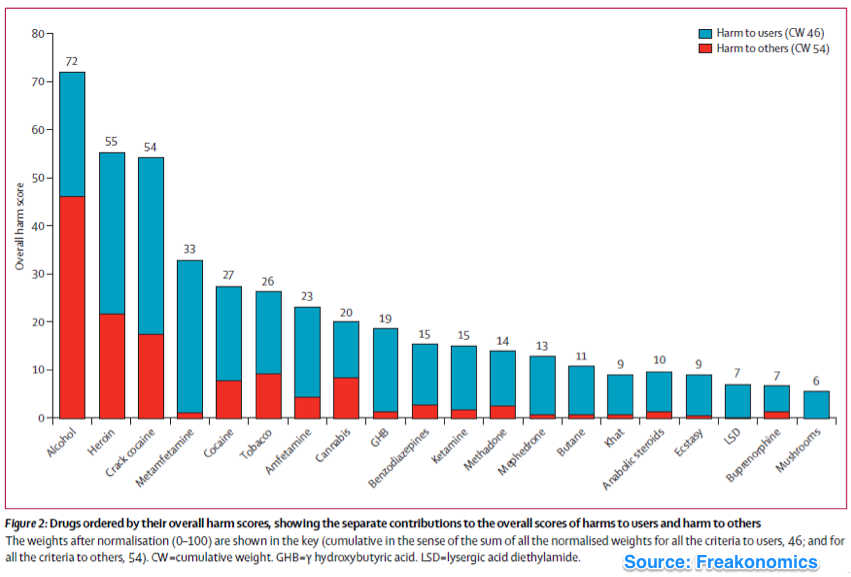
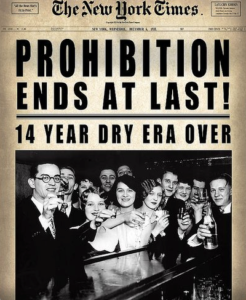 LEGALIZED MARIJUANA WILL MAKE MINNESOTA MORE FREE. Finally, just as ending alcohol prohibition made America a more free nation, ending marijuana prohibition will make Minnesota a more free state. If marijuana was legalized, I probably wouldn’t use it. But if some in the “land of the free” want to use something that is demonstrably safer than legalized alcohol, a free society should allow them to do so.
LEGALIZED MARIJUANA WILL MAKE MINNESOTA MORE FREE. Finally, just as ending alcohol prohibition made America a more free nation, ending marijuana prohibition will make Minnesota a more free state. If marijuana was legalized, I probably wouldn’t use it. But if some in the “land of the free” want to use something that is demonstrably safer than legalized alcohol, a free society should allow them to do so.